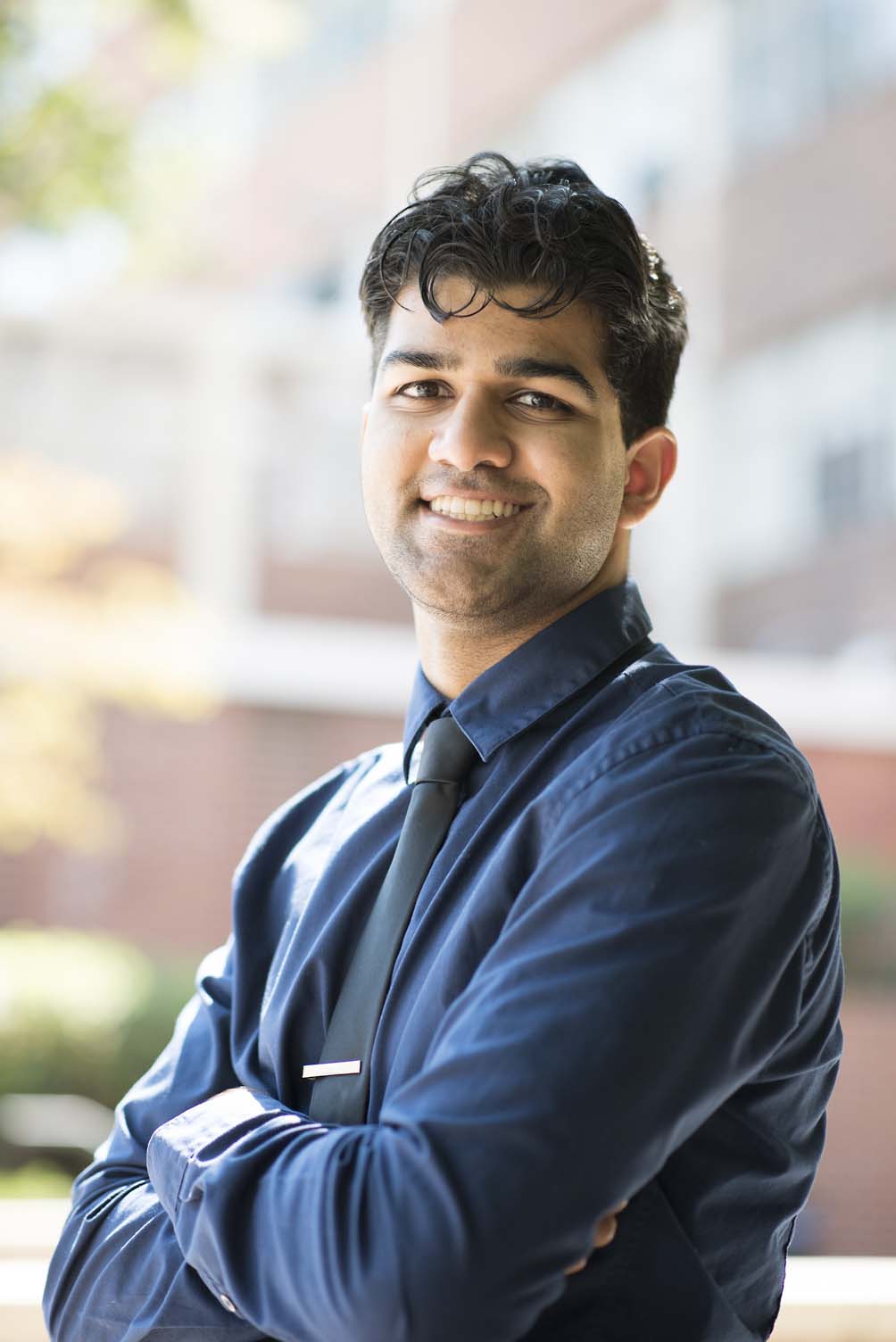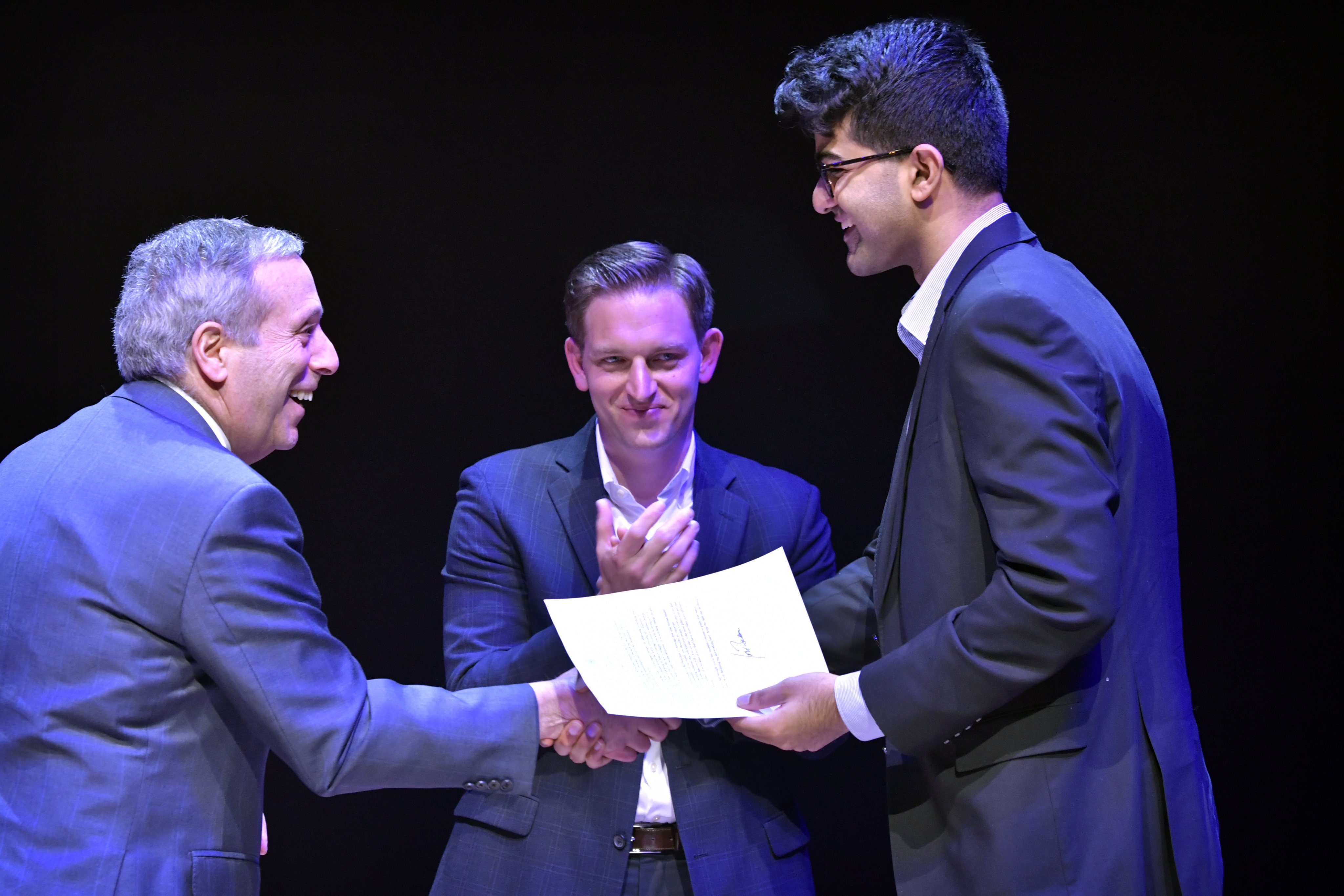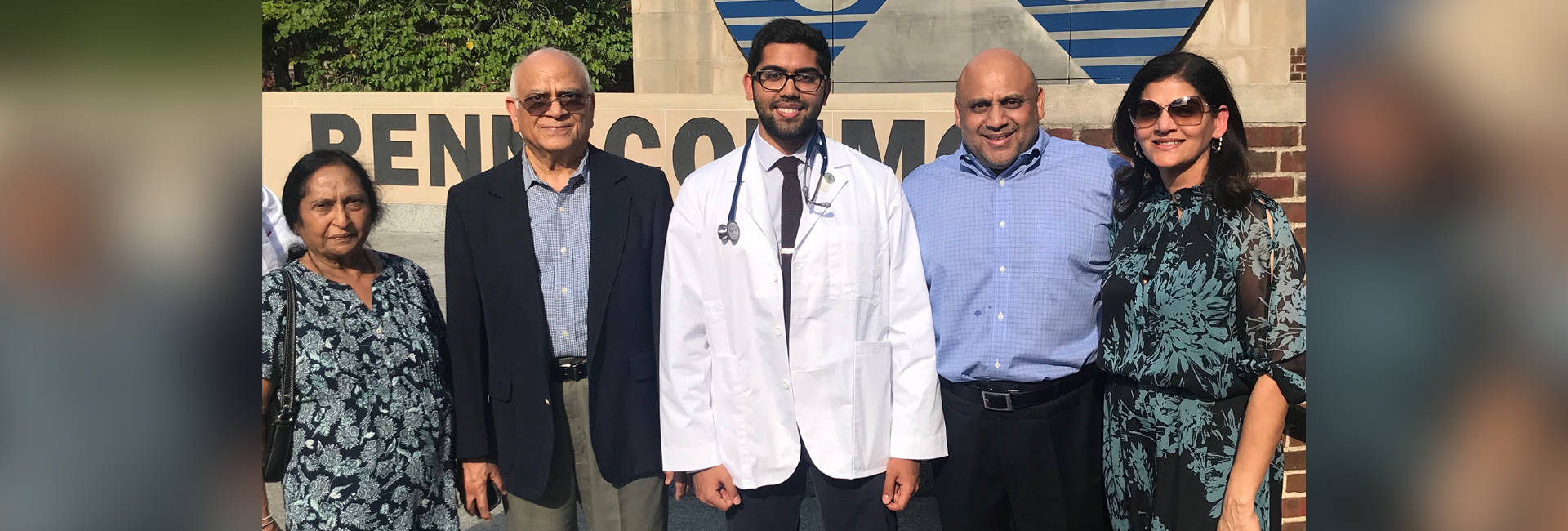(June 6, 2023) It was 2015, and a young Nathan V. Mallipeddi was standing in a bowl-shaped auditorium, in front of an assembly of esteemed professors, teachers, and peers, awaiting his momentous science project presentation. As he stood there, the weight of expectation pressing upon his shoulders, he took a deep breath, ready to present the culmination of his intellectual prowess. But, when the scholar opened his mouth, he couldn’t even speak his name.
“I just froze,” Nathan said in an interview. As the minutes ticked by, an intense silence hung in the air. However, the scholar shared, “Eventually, I got it out and then the rest of the presentation was a little bit tough.” And this became a turning point in Nathan’s life, who took matters into his own hand, to not just help himself but all those who struggle with a stutter. In 2017, the Global Indian is the Founder and CEO of Myspeech, a global nonprofit organisation that uses technology to group people who stutter into treatment groups.

Recognising his work and that of his organisation’s, President Joe Biden quite recently wrote a letter to the Harvard Medical School, stating, “Growing up, I stuttered. I remember the pain, dread, and fear of speaking in front of a group or even to another person, but I also learned that when you persevere in the face of struggle, you will be stronger for it. And the efforts of Myspeech will help so many people persevere. You will help change people’s lives for the better.”
Rising above the challenges
Nathan was born in Cincinnati, Ohio, to parents who had immigrated from India, in search of better job prospects. However, the family had to make a tough decision to send the scholar to live with his grandparents in Andhra Pradesh for three years. Upon reuniting with his parents in the San Jose Bay Area, Nathan developed a profound admiration for their unwavering courage and the strength of thriving immigrant communities.
While the scholar managed to stay at the top of his class in every written examination, his stuttering issues got in the way of his academic success. However, what troubled him more was his father’s own journey with stuttering. “He never accepted it,” Nathan said, adding, “He was always focused on trying to hide it and trying to overcome it. He spent his whole life ignoring and treating his stutter as an enemy. So, when I was stuttering growing up, he would constantly tell me, ‘Stop stuttering, stop stuttering.”
Speaking about the challenges he faced, the scholar shared, “It’s an invisible disability. What’s unique about these kinds of conditions is that when people slip up, they’re automatically attributed to being nervous or stupid or something. And that mistake is not attributed to their disability.” Nathan got help with his stuttering in school from speech therapists, who he thought lacked proper training in dealing with the issue. “They mainly focused on teaching techniques to speak fluently and measuring how often the stuttering was visible. However, they didn’t address the emotions and feelings that often make stuttering challenging to cope with, which is an important aspect of the stuttering experience,” he said.
Finding his voice
Braving the odds, the scholar went on to join the University of California, where he earned the undergraduate degree in 2020 Summa Cum Laude. However, during his time at UCLA, Nathan couldn’t resist the urge to build a platform to help more students, who also struggle with stuttering. And after months of research, the scholar developed the Stuttering Scholarship Alliance (SSA), which eventually led to him establishing, MySpeech. “I grew anxious, depressed, and silent,” shared Nathan, adding, “Over the years, I learned to embrace my stutter and devoted long hours to finding my voice. I would not be where I am today without the support from speech therapists and peers; however, many who stutter lack stable support networks. I founded Myspeech to build that support system—empowering millions to reach their full potential.”


Nathan receiving the Social Impact Track at Harvard
Myspeech uses technology to group people who stutter into treatment groups. The platform provides personalised speech therapy, important community resources, and connections with others. So far, Myspeech has helped over 30,000 people who stutter in more than 25 countries. The services they offer have shown a 90 percent improvement in the quality of life and a 15 times decrease in costs. Since its inception, SSA has assisted approximately 20,000 individuals in over 25 countries and partnered with companies like Google and Microsoft.
“Society places premium value on communication, and there are millions of people who stutter and feel that there is no place for them in the world. The Myspeech platform provides people who stutter with the tools to improve their quality of life. We match a network of patients with stuttering-focused resources, including visits with expert therapists, educational content, mobile applications to practice speaking techniques; and community resources,” the scholar shared.
From struggle to strength
Currently an MD/MBA student at Harvard Medical School and Stanford Graduate School of Business, Nathan’s focus lies in finding solutions that positively affect the lives of individuals with communication disorders. The scholar has also earlier contributed to various projects related to biology and public policy, including the discovery of a new role for histone proteins as copper reductase enzymes, constructing a framework to comprehend the definition and implementation of disabilities, and creating public policy initiatives aimed at fostering employment opportunities for individuals with disabilities in Los Angeles.
The scholar, who recently received the prestigious Paul & Daisy Soros Fellowships for New Americans, is passionate about investing but also actively conducts research. He played a key role as a founding investor at VANA Capital, where he identified and secured several investments in the biotechnology field. He has also made significant contributions as an author, having published 10 research papers in esteemed academic journals such as Science, Science Advances, Nature Biotechnology, Journal of Fluency Disorders, and Autism in Adulthood. “I aspire to make a career as a healthcare operator and investor focused on transforming the delivery of healthcare services for people with communication disorders,” the scholar shared.





Great story and I was very inspired. .